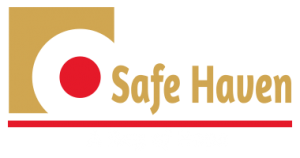About Safe Haven – A Ray of Hope
Due Diligence Policy
1. Introduction
Safe Haven – A Ray of Hope is committed to responsible and ethical decision-making when working with external organisations, individuals, and donors. To safeguard the integrity, mission, and resources of the charity, we carry out proportionate and risk-based due diligence checks when considering new partnerships, grant applications, contracts, and large donations.
This policy outlines the procedures, checks, and guiding principles used to assess risk and ensure that those we work with reflect our values and comply with legal, regulatory, and ethical standards.
2. Risk-Based Approach
We adopt a risk-based approach to due diligence, meaning the scope and depth of checks will depend on:
-
The value of the grant, donation, or contract
-
The sensitivity, complexity, or profile of the partnership or project
-
The geographic region involved and any known regulatory risks
-
The track record and reputation of the organisation or individual
-
The potential reputational, legal, or operational risk to the charity
For legal, regulatory, or financial complexities, we may seek external expert advice to support our assessment.
3. Key Risk Factors to Consider
When carrying out due diligence, we consider:
-
Is the amount of money involved substantial?
-
Is the project particularly sensitive, large-scale, or high-risk?
-
Is the partner well known and reputable, or is there a risk of association with unethical or illegal activity?
-
What is the likelihood and potential consequence of something going wrong?
4. Conducting Due Diligence
Due diligence checks should be proportionate and always respect individuals’ rights to privacy. Information should only be collected where there is a legitimate business reason, handled securely, and shared only on a need-to-know basis. Reports must be:
-
Factual, balanced, and clearly sourced
-
Kept for no longer than necessary
-
Reviewed and approved by a senior staff member not directly involved in the transaction
5. Basic Checks
-
Review the partner’s website and verify alignment with their proposal
-
Download and review their annual report and financial accounts
-
Conduct a thorough internet search, including deeper pages, on the organisation and key individuals
-
Call references or speak to others in their sector
-
Verify company/charity registrations and check regulator reports (e.g. Companies House, Charity Commission)
6. Additional Checks (Where Risk Warrants)
Depending on risk level, further checks may include:
A. Ethics & Safeguarding
-
Are there activities inconsistent with our values (e.g. corruption, exploitation, discrimination)?
-
Are safeguarding policies in place and implemented effectively?
-
Does the organisation comply with the Modern Slavery Act (UK), including its supply chain?
B. Compliance & Regulation
-
Any major breaches of regulatory frameworks, government investigations, or litigation?
-
Are they a designated or proscribed organisation?
-
Check with the Charity Commission, OSCR, or other regulators
-
Are required licenses, qualifications, or insurance policies current and valid?
C. Individuals (Where Relevant)
-
Are they bankrupt or subject to insolvency restrictions?
-
Are they disqualified as a company director or charity trustee?
-
Are they listed on court judgement registers?
D. Financial Health
-
Review for indicators such as:
-
Operating losses or insolvency risk
-
Over-reliance on debt or high leverage
-
Adverse audit opinions
-
Unusual related-party transactions
-
Staff redundancies or profit warnings
-
-
Use tools like Companies House, Charity Commission accounts, and online risk assessment reports
E. Capacity to Deliver
-
Assess ability to meet deliverables on time, on budget, and to required standard
-
Review past performance and any relevant references
-
Investigate supply chain issues or risks of overdependence on single individuals
F. Reputational Risk
-
Could this relationship expose the charity to media criticism or public concern?
-
Are there ethical conflicts, or negative publicity from other funders or partners?
7. Donations & Funding Risk
For donations, due diligence is especially important where:
-
The donation is anonymous, unusually large, or comes from a vulnerable person
-
The source of funds is unclear or potentially linked to unethical activities (e.g. tax avoidance schemes)
-
There is a risk of private benefit, conditions undermining the charity’s independence, or the possibility of money laundering
8. Contracts & Agreements
Before entering into any significant contract or agreement:
-
Ensure the terms are fair, deliverables are clearly defined, and timelines are realistic
-
Include provisions for monitoring, reporting, and clawback
-
Ensure deliverables are wholly charitable in nature
9. Managing Conflicts of Interest
-
Always follow the charity’s Conflict of Interest Policy
-
If the individual conducting due diligence is too close to the subject (e.g. fundraising lead or project manager), findings must be reviewed by a senior, independent person
10. Recording and Reviewing Decisions
All due diligence activity must be documented, including:
-
The level of checks performed and by whom
-
The findings and risk assessment
-
The decision made and who approved it
For higher-risk or unusual partnerships, a summary should be submitted to the Board or relevant committee.
11. Policy Review
This policy will be reviewed annually, or sooner if new risks, guidance, or legislation emerges.
Approved by:
Blessing Olalemi: May 30th
Kerry- Ann Batten: May 29
John Olalemi: May 30th
Last reviewed: May 30th 2025 | Next review: June 2026
